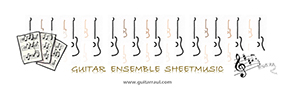The electric guitar held an elevated position within western popular music during the second half of the twentieth century. The instrument’s most well-known practitioners were referred to as “heroes” and “gods,” and broadcast their performances through recordings, radio, television, and press. Inter-personal and technological associations coalesced into an instrument-specific, sociomusical practice distributed through broadcast media. Since the 1990s, multiple technologies have disrupted these existing associations. Online media’s wide-spread adoption offers alternative conduits for inter-personal relationships and upsets pre-existing flows of media production and consumption. Recent guitar and recording technologies offer new modes of agency for hobbyists, professionals, performers, retailers, and manufacturers. This project investigates how guitarists adapt to online exchange.
I apply Actor-Network-Theory’s methodological and ontological perspectives to communities constituted from social and technological associations. Three years of interviews with amateur and professional guitarists, participation in online discussions, and analyses of streaming videos provide an account of shared practices in flux. Developing genres of guitar media publicize formerly private interactions. Analyses of online discourse and streaming videos trace changes occurring in guitar pedagogy, epistemic belief, and the evolution of the “hero” persona. Cross-sectional comparisons of guitar- based videos demonstrate how negotiations with the instrument and streaming video technologies produce ontological transformations of musical material.
Hearing connections: an actor-network study of online guitar activities
http://escholarship.org/uc/item/5gh341tw#page-12





